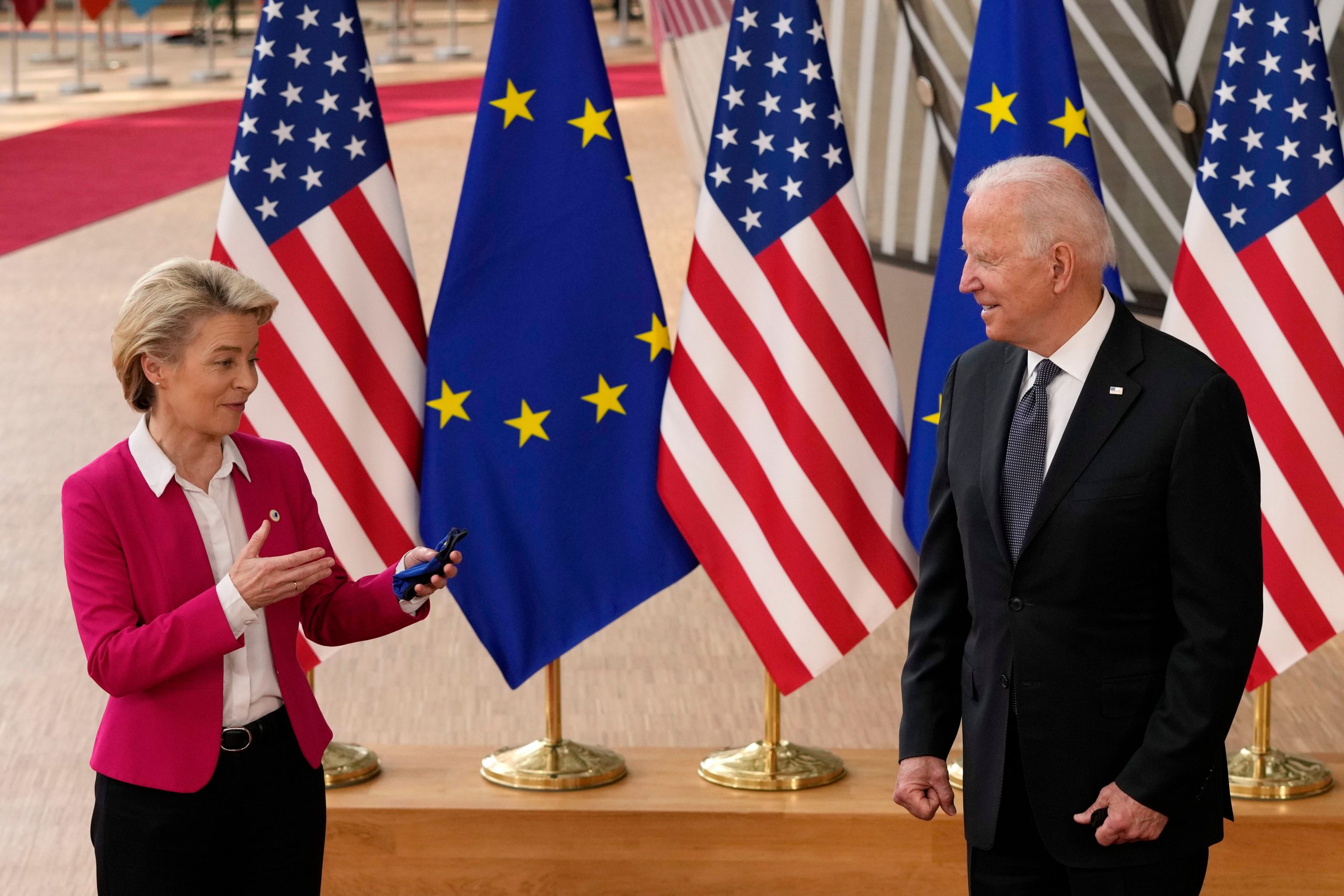European Union and the United States put aside their differences relating to the years-long Airbus-Boeing dispute and decided to jointly take on China.
The deal was given a formalised structure in the US President Joe Biden’s meeting with leaders of the European Council and European Union.
European Council President Charles Michel and European Commission President Ursula von der Leyen hosted the US President in Brussels.
Washington and Brussels will “work together to challenge and counter China’s non-market practices in this sector that give China’s companies an unfair advantage,” Biden said in a statement issued after the talks, reported AFP.
“It’s a model we can build on for other challenges posed by China’s economic model,” he added.
Von der Leyen said the summit had “delivered” as she hailed a “breakthrough” in a feud that became one of the longest in World Trade Organization history.
“This really opens a new chapter in our relationship because we move from litigation to cooperation on aircraft,” she added.
Earlier this year Biden and Von der Leyen — the president of the European Commission — had suspended retaliatory tariffs in the dispute over subsidies for the rival planemakers. The punitive measures targeted European cheese and wine and American wheat and tobacco, among other products.
Officials said the truce would last for at least five years, leaving enough time to resolve the fight — while still factoring in China’s growing capability in the aviation industry.
Biden’s two-hour stopover at EU headquarters, tucked between a NATO summit and his sitdown with Russian President Vladimir Putin in Geneva, is supposed to mark a clear break with the tumultuous four years with Donald Trump as president, reported AFP.
Airbus and Boeing welcomed a deal that the former said would “provide the basis to create a level-playing field which we have advocated for since the start of this dispute”.
French President Emmanuel Macron hailed the agreement as “good news” for French wine producers, who see American tariffs lifted as part of it.
“These are the first results of our new relationship with our American partners. This is effective cooperation,” he wrote on Twitter.
Germany’s Economy Minister Peter Altmaier said the accord was “a great relief”.
Ngozi Okonjo-Iweala, head of the WTO, said she was “delighted” to see that “even the most seemingly intractable differences can be resolved”, reported AFP.
The Europeans are trying to clear the slate of trade disputes to consolidate a more friendly phase and jointly tackle other issues, which also include curbing big tech and handling Russia.
A European official said both sides had been “sweating” to find common ground ahead of the meeting and give a clear sign that Trump-era battles will soon be behind them.
But another, as yet unsolved, row is a tariff of 25% on steel and 10% on aluminium that Trump slapped on Europe and other close partners in 2018.
Brussels hit back with counter-tariffs on 2.8 billion euros worth of iconic US products, including bourbon whiskey, jeans, and Harley-Davidson motorbikes.
Von der Leyen said the “first priority” was put on the aircraft dispute and that Washington knew that a solution was needed on steel by the end of the year when Europe could inflict fresh sanctions.
Trump and Brussels also quarrelled over taxing big tech platforms after France led a group of EU states by hitting Google, Facebook and others with a special levy.
Washington fought back with a wave of counter-tariffs that Biden has frozen, as both sides await a worldwide deal on how to better tax big tech companies.
The European leaders, along with Biden, agreed to work under the banner of a ‘Trade and Technology Council’, which will aim to form rules for artificial intelligence and other such technological innovations.
A senior US administration official described the council as an important initiative that would serve as a platform for cooperation for years ahead.
“The notion here is that the United States and Europe laid the foundation for the world economy after World War II and now have to work together to write the rules of the road for the next generation,” the official said.
Even though the communique did not specify China as a backdrop of the agreement, it said that it will attempt to formulate rules for “technologies based on our shared democratic values, including respect for human rights”, reported AFP.







